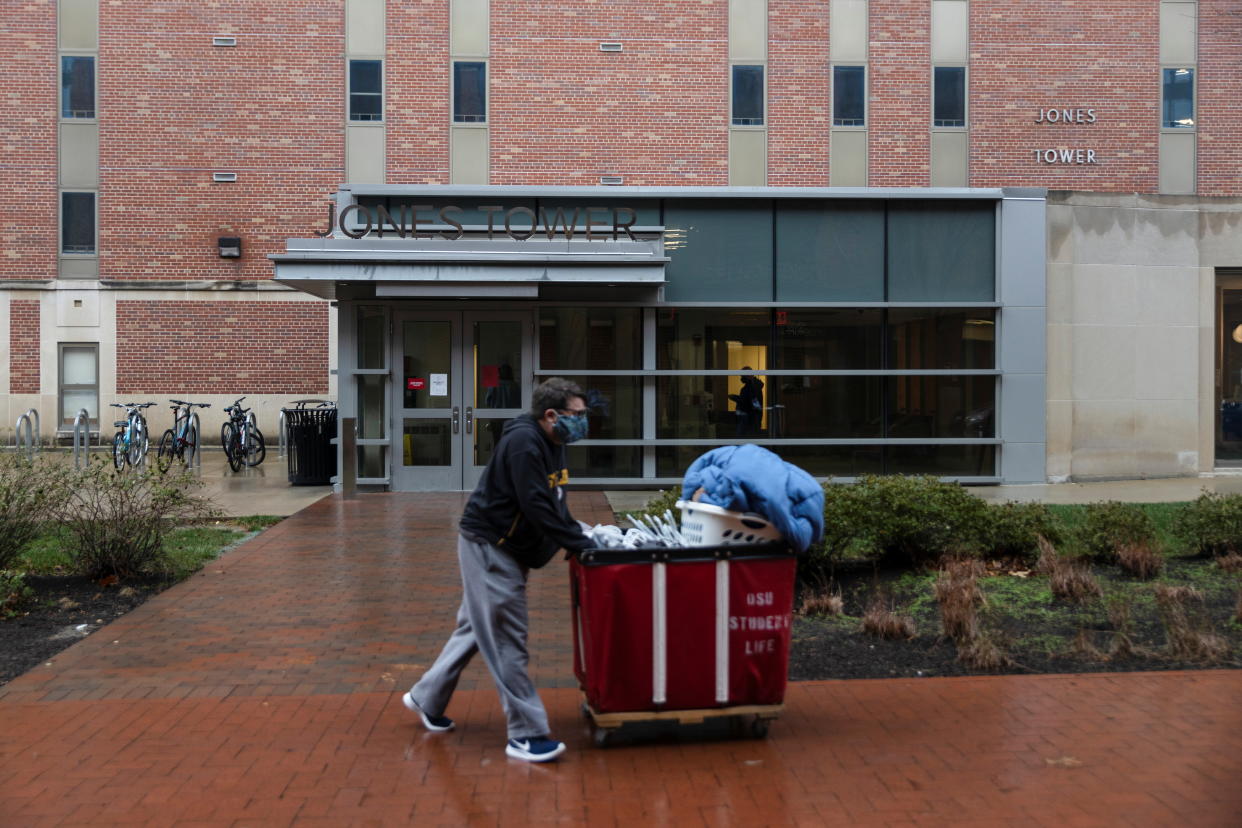3 reasons why college enrollments are declining, according to Coursera's CEO
College enrollments continue to drop in the U.S. as students seek alternatives to the traditional university experience.
For the spring 2022 term, enrollment across public and private colleges in the U.S. fell to 16.2 million, down 4.1% year over year, according to the National Student Clearinghouse Research Center. That decline continues the trend of weakening enrollment that has been in place since before the coronavirus pandemic.
"We have seen certain headwinds from the general softness in college enrollments," Jeff Maggioncalda, CEO of online learning platform Coursera, told Yahoo Finance Live (video above). He pointed out three major reasons why traditional two-year and four-year colleges are struggling to fill seats.

“The U.S., I think, is facing certain demographic challenges,” Maggioncalda said. “The millennials have come through. That was a very big generation. And part of what we're seeing is fewer student-age people coming through the system. I think that's one of the things that's putting downward pressure on enrollments.”
The CEO noted that this challenge is particular to the U.S. "When you look at India and you look at Latin America, you look at Africa, there's a huge boom in college enrollment," he said. "So this is more of a U.S. phenomenon that we're seeing."
The second factor has to do with the tight job market, Maggioncalda explained, pointing out that enrollments at elite schools have remained strong even as applications to other schools have dwindled.
“I think what's happening among other types of universities and colleges, community colleges notably, is one, a pretty strong job market in the U.S., where we have low unemployment rates, lots of job opportunities that might have a student defer for a year or two,” he said.

Third "is the alternatives to learning that just didn't exist, say, five, 10 years ago," Maggioncalda noted.
He credited the pandemic with accelerating this trend as flexible and affordable tools for learning skills and getting better-paying jobs became more prevalent.
As a learning platform that offers access to online courses and degrees, Coursera has been leaning into flexible job-oriented skills courses. For instance, the company launched Career Academy in May, a program that allows students to obtain 30 different professional certificates, particularly in the technology sector.
These courses are "created by IBM and Google, Salesforce, Meta," Maggioncalda said. "Students can take these things online and potentially defer going to college. But now increasingly at the statewide levels, we are seeing states say that the state education system will award academic credit towards a college degree for a professional certificate earned on Coursera."
As a result, students are thinking twice about signing off on high tuition fees, Maggioncalda added. "A lot of students are looking at the ROI calculation saying, I'll start my degree online on Coursera in a job training program and then have that count towards a campus-based degree program if I want to do that in a couple of years."
Maggioncalda expressed optimism in the long-term outlook for online learning, even as tech companies such as Coursera face macroeconomic headwinds.
"We feel really good about the opportunity and the need in the market that we can meet," the CEO stated. "We do want to be prudent, though, about how we spend our money. And I think, like all companies, we're looking carefully at where we get the best leverage."
Edwin is a producer for Yahoo Finance. You can follow him on Twitter @Edwin__Roman.
Read the latest financial and business news from Yahoo Finance
Download the Yahoo Finance app for Apple or Android
Follow Yahoo Finance on Twitter, Facebook, Instagram, Flipboard, LinkedIn, and YouTube
